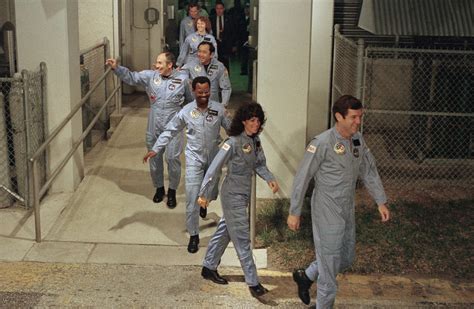In the annals of space exploration, the Challenger disaster remains one of the most tragic and instructive events. The explosion of the spacecraft shortly after launch in January 1986 continues to serve as a painful reminder of the devastating consequences of poor leadership and the poignant heroism of those who dared to dissent. Among these voices was Allan McDonald, an engineer who became a steadfast advocate for ethical decision-making, emphasizing the importance of sticking to what’s right, even in the face of overwhelming pressure.
The Challenger tragedy epitomizes the classic struggle between technological fact and managerial hubris. McDonald stood firm against launching the Challenger due to concerns about the O-rings in cold temperatures. His apprehension wasn’t a trivial complaint but a critical warning backed by engineering evidence. Yet, McDonald was overruled by executives at Morton Thiokol under intense pressure from NASA officials—an example of how organizational dynamics can fatally skew decision-making processes.
Contrast McDonald’s behavior with the prevalent state of corporate clones today. In large corporations, agreeing with higher-ups, avoiding conflict, and maintaining the status quo often take precedence over innovation or voicing dissent. As one commenter noted, “In corporate world, everything must be tame and beige. Conflict or differences of opinion are avoided to focus on the areas where everyone agrees.” This pervasive culture can stifle innovation, demoralize employees, and perpetuate systemic risk, mirroring the failures seen in the Challenger disaster.
Imagine the courage it takes to stand your ground when it seems the entire world is pushing against you. Another commenter captured this sentiment perfectly, stating that society celebrates heroes who stand for the truth but paradoxically treats such ‘inconvenient’ people harshly in real life. This duality was evident in how McDonald faced demotion and professional isolation after the incident, despite being exonerated professionally later. His struggle underscores the harsh realities whistleblowers face even when their intentions are unequivocally noble.
The Challenger disaster also invites us to reflect on the broader ethical implications in today’s tech-driven landscape. Commenters argued that having engineers with the moral conviction to reject harmful projects is increasingly rare. For instance, the same ethical dilemmas McDonald faced around the Challenger are now unfolding in the realms of AI development, surveillance, and machine learning. The idea of refusing to work on AI isn’t just hypothetical; it speaks to the heart of ethical engineering in contemporary society. As noted by one user, “Refusing to work on something is not newsworthy. I refuse to work on (or use) AI, ads and defense projects.
The professional courage displayed by McDonald and his peers also highlights the risks of passive, risk-averse leadership. One commentator aptly remarked, “Passive management isn’t a thing – despite the prevalence of passive leaders.” This is particularly relevant in technology companies where pushing boundaries is pivotal, yet often stifled by a desire to avoid conflict or change established methodologies. Challenging this requires leaders who prioritize ethical considerations and the welfare of society over short-term gains.
The current state of artificial intelligence further complicates this landscape. Concerns about AI and its applications, particularly regarding privacy, ethics, and societal impact, dominate discussions. Commenters noted the irony of ‘ethical’ AI developments by companies historically known for less savory practices, like Facebook or Google. The dissonance between the potential benefits of AI and its current deployment underscores the ethical minefield tech professionals navigate today.
The broader lessons from the Challenger are clear: prioritizing truth and integrity should transcend every level of decision-making, especially in high-stakes industries like technology and space exploration. Engineers and managers alike need to foster environments where dissent is valued and ethical concerns are rigorously debated rather than dismissed. The standards set by McDonald should not be an exception but a norm.
As we rapidly advance into more complex scientific and technological realms, the story of the Challenger should serve as a guiding light for all professionals. Ultimately, leadership is not just about guiding organizations to success but also about making the right decisions, even when they’re unpopular. McDonald’s legacy, alongside those who champion ethical practices, underscores the heavy, often unrewarded, cost of doing what’s right. May we all aim to uphold these principles in our daily professional endeavors.


Leave a Reply